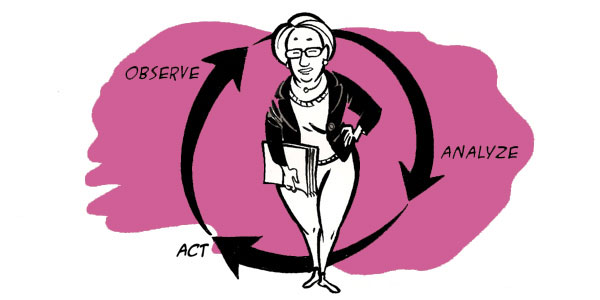The goals we formulate in our political programs are often forgotten in everyday political life. But goals and plans are the maps that provide direction for our work and must be taken seriously.
To make goals meaningful we must systematically assess progress and evaluate whether our decisions contribute to the development we want to see. We need to measure the pace of development and to what degree we are fulfilling our goals. To enable us to work like this we need to have goals that are formulated in a manner that can be measured and assessed. Evaluations must always be an integral part of our planning processes.
Our own goals as local politicians must also be formulated in ways that allow them to be measured.

Measurable goals
Goals should be formulated so that they describe what we want to achieve. The goals must be clear and realistic, aimed at activity, and limited in time. We must ensure that progress towards achieving our goals can be measured or at least be evaluated. If this cannot be measured, the goals will not function as steering instruments. We must know how we are going to evaluate the goals when we formulate them to be able to determine whether or not the goals are being achieved.
Evaluation of budgets and finances
The finances are central to all political activities and we are quite used to thinking in economic terms in our evaluations. Material is found in financial reports and other statistics on a continuous basis. It is usually easy to say what we have spent or where we have increased spending.
But for politicians, qualitative evaluations are equally important. These evaluations concern what quality we deliver to the citizens rather than how much money is spent within each portfolio.













